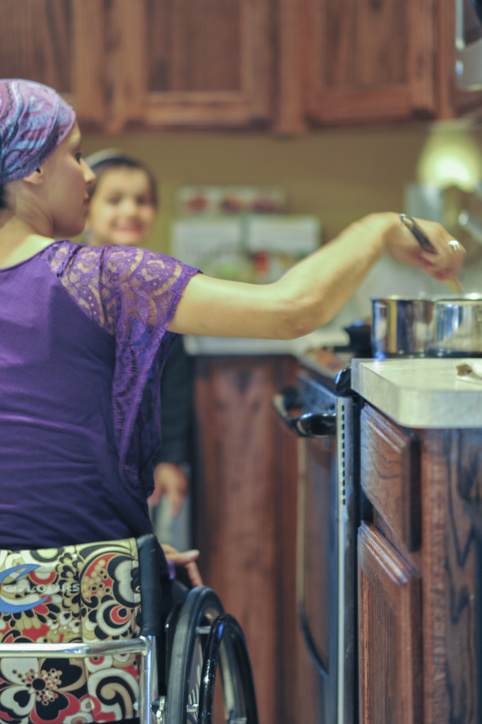Stigma and Stereotypes Facing Mothers with Disabilities (Plain-Language Version)
Download PDF | Original version

The Disabled Parenting Project (DPP) has hosted two Mother’s Day Twitter Chats. In 2016, 152 people participated and there were 900 tweets. In 2017, 83 people participated and there were 377 tweets. Each Twitter Chat lasted an hour. One of the important discussions was about stigma and stereotypes against mothers with disabilities.
Stereotypes and stigma are hurtful ideas about groups of people, like people with disabilities, immigrants, Black people or Latinos. Stigma means that people think that you are bad because you belong to a certain group of people. Stereotypes happen when people think groups of people all act the same way. Stigma and stereotypes can lead to being treated badly.
Here are some important ideas, along with what people had to say about them.
“But you can’t raise children!”
People wondered if many of the mothers could take care of their children. They did not think the mothers would do a good job because of their disability. Some mothers said that these wrong ideas can cause them to have to deal with child welfare.
-
“When other moms mess up, they blog, when disabled moms do, they fear having [child protection services] take their children.”
-
“That we are unable to have children, that our kids will be [people with disabilities], that we are unequipped (not ready) to care for children.”
-
“Since moms with disabilities do things differently, we are at risk of losing our kids if well mean strangers get worried.”
-
“Misconceptions (wrong ideas): Is that we’re incapable (not able). I think for autistic parents, we need more to show our abilities.”
-
“School often assumes I’m not competent (able).”
“But it’s not fair to the children!”
Some of the mothers had talked to people who believed it was unfair for children to have parents with disabilities.
-
“That it is unfair to the child. It’s just assuming that we can’t do anything because we are disabled.”
-
“The pervasive (common) assumption that having a disabled mom makes our kids life harder.”
-
“The assumption that my kids (6, 8, and 10 weeks) ‘take care’ of me and their dad. Not the case-and a little laughable!”
-
“That my daughter has less of a childhood because of me and that I can’t play with her or take care of her.”
